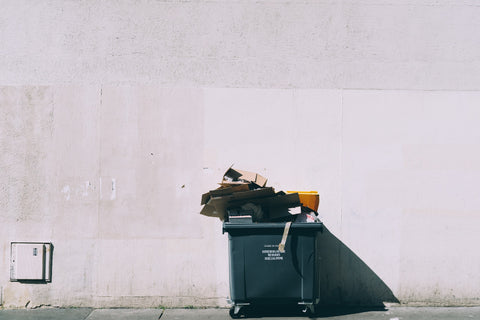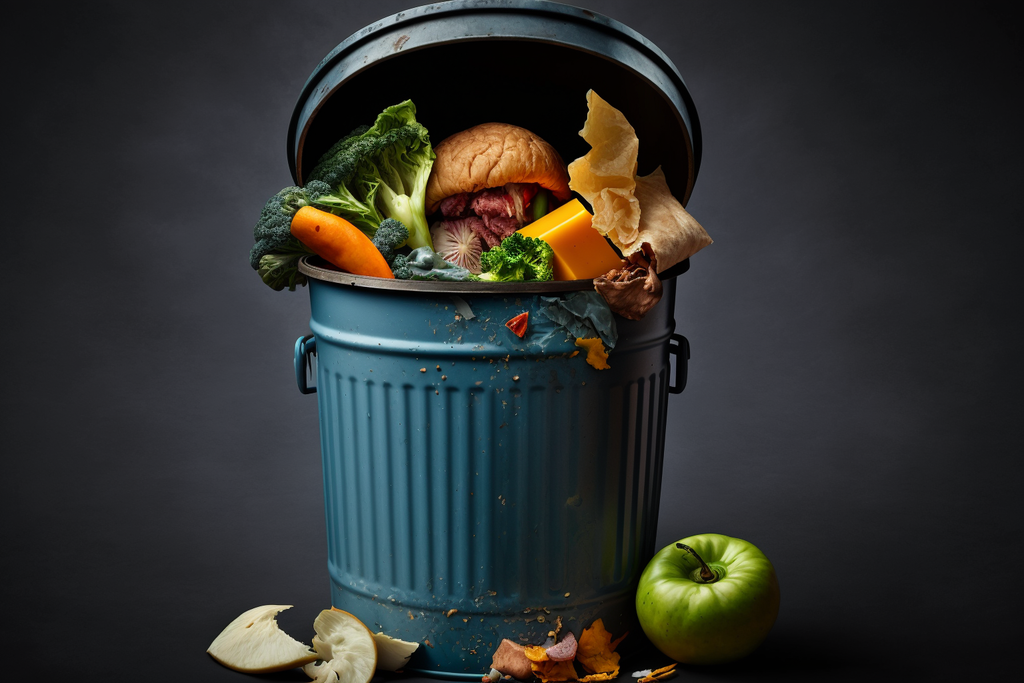Trash, or waste, is a common byproduct of human activity. It is important to properly manage and dispose of trash in special trash bins in order to protect human health and the environment. There are various types of trash that can be generated, each requiring different methods of handling and disposal. In this article, we will explore the different types of trash and the importance of proper management.
Solid Waste
Solid waste refers to the tangible, everyday items that are discarded by households and businesses. This can include items such as packaging materials, food waste, clothing, appliances, and furniture. Solid waste can be further divided into two categories: biodegradable and non-biodegradable.
Biodegradable waste, such as food scraps and paper products, can be broken down by natural processes and returned to the environment. Non-biodegradable waste, such as plastic and metal, does not break down and can remain in the environment for long periods of time.
Hazardous Waste
Hazardous waste is any material that is dangerous or potentially harmful to human health or the environment. This can include items such as chemicals, batteries, electronic devices, and medical waste. Hazardous waste requires special handling and disposal, as it can pose a risk to human health and the environment if not handled properly.

Recyclable Waste
Recyclable waste refers to materials that can be collected, processed, and transformed into new products. This can include items such as paper, cardboard, metal, and plastic. Recycling helps to conserve natural resources and reduce the amount of waste that ends up in landfills.
E-Waste
E-waste, or electronic waste, refers to discarded electronic devices such as computers, televisions, and mobile phones.
E-waste contains a variety of materials, including metals and hazardous substances, that require special handling and disposal.
Construction and Demolition Waste
Construction and demolition waste refers to the materials generated during the construction, renovation, and demolition of buildings. This can include materials such as concrete, brick, wood, and drywall. Proper management and disposal of construction and demolition waste are important to prevent environmental damage and protect natural resources.
Medical Waste
Medical waste refers to any waste generated during the diagnosis, treatment, or immunization of humans or animals. This can include items such as sharps (needles, scalpels, etc.), laboratory cultures and stocks, and infectious substances. Medical waste requires special handling and disposal to prevent the spread of disease. In other words, medical waste should be disposed in different trash can.
Food Waste
Food waste refers to discarded food or food that is not fit for consumption. This can include items such as spoiled or excess food, as well as food scraps and peelings. Food waste can be a significant contributor to solid waste, as it accounts for a large portion of household waste.

Yard Waste
Yard waste refers to organic materials generated from the maintenance of yards and gardens. This can include items such as grass clippings, leaves, and branches. Yard waste can often be composted, which is the process of breaking down organic material into a soil-like substance that can be used in gardening and farming.
White Goods
White goods, also known as large appliances, are large household appliances such as refrigerators, stoves, and washing machines. White goods can be a significant source of solid waste and require special handling and disposal due to their size and the materials they are made of.
Household Hazardous Waste
Household hazardous waste refers to materials that are potentially hazardous and found in the home, such as cleaning products, pesticides, and batteries.
These items require special handling to prevent harm to humans and the environment.
Special Waste
Special waste refers to materials that require special disposal due to their unique characteristics or potential for harm.
This can include items such as asbestos, lead-based paint, and fluorescent light bulbs. Special waste requires special processing and disposal to ensure it is handled safely.
Conclusion
Proper management and disposal of trash is essential for protecting human health and the environment.
There are various types of trash that require different methods of handling and disposal, including solid waste, hazardous waste, recyclable waste, e-waste, construction, and demolition waste, medical waste, food waste, yard waste, white goods, household hazardous waste, and special waste. By understanding the different types of trash and the proper methods of handling and disposal, we can work to create a cleaner and more sustainable world.
FAQ
What are the different types of waste?
The different types of waste include garbage, recyclables, organic waste, and hazardous waste. Each type of waste has unique properties and must be managed and disposed of in different ways.
What is garbage?
Garbage consists of everyday household and business items that cannot be recycled or composted. This includes items such as mixed plastics, contaminated paper materials, and broken household goods.
What are recyclables?
Recyclables consist of items that can be collected and reprocessed to create new materials. Common recyclables include aluminum cans, glass bottles, and clean paper materials and they need to be checked by the local recycling program since not all of them use the same criteria.
ABOUT THE AUTHOR
Aleksandra Djurdjevic
Senior Content Creator
Aleksandra Djurdjevic is a senior writer and editor, covering jewelry, accessories, and trends. She’s also works with services, home décor. She has previously worked as ESL teacher for English Tochka. Aleksandra graduated from the Comparative Literature department at the Faculty of Philosophy in Serbia. Aleksandra’s love for the environment, crafts and natural products over the years helps her continue to be a top expert at Wooden Earth.






